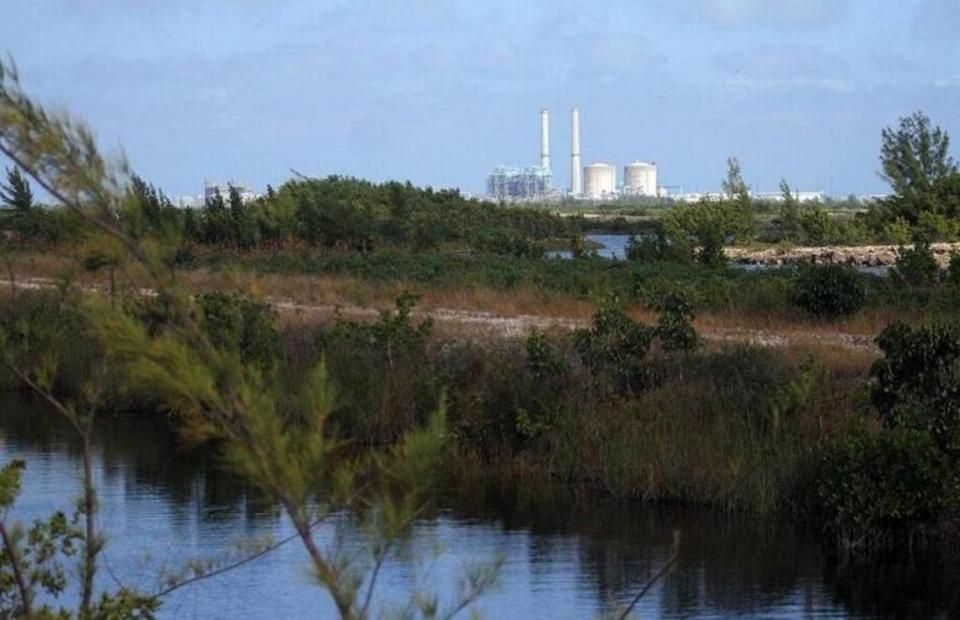Turkey Point nuclear reactors get OK to run until 2053 in unprecedented NRC approval
The Turkey Point nuclear power plant has won final federal approval to continue to operate through at least 2053 — an unprecedented decision by regulators to extend the operating lifespan of nuclear reactors to 80 years.
The Nuclear Regulatory Commission on Thursday announced that it had signed off on Florida Power and Light’s latest application for a 20-year extension for its two reactors located along the mangrove-lined coast of south Biscayne Bay. The utility’s operating licenses, which the federal agency had already agreed to extend by two decades once before, will now expire in July 2052 and April 2053.
“This is the first time the NRC has issued renewed licenses authorizing reactor operations from 60 to 80 years,” the agency said in a statement. The reactors, which went into operation in 1972 and 1973, are now cleared to continue operation for twice as long as the original 40-year operating license had allowed.
FPL, in a statement, said the license renewals represent a major milestone after it made “significant investments in upgrades over many years” to the facility, which the utility says produced enough power for 900,000 homes.
Over the past few years, however, FPL has faced criticism and legal challenges over Turkey Point’s aging cooling system, a unique canal network that doesn’t exist anywhere else in the U.S. The mounting problems from the leaking canal water, which created a massive saltwater plume encroaching into the adjacent freshwater aquifer, have led state and county regulators to cite FPL for polluting the waters in Biscayne Bay.
In 2014, the plant also struggled with hot temperatures in the canal system after FPL finished a massive multi-million-dollar overhaul to boost power coming from the reactors. The hotter and increasingly saltier canals triggered persistent algae blooms, threatened to shut down the reactors, and forced FPL to scramble to look for water to cool and freshen the system.
Three years ago, a study also found radioactive isotopes in high levels in nearby areas of Biscayne Bay. Since 2016, FPL has been under court order from the Florida Department of Environmental Protection to contain the spreading plume and prevent contamination of the water supply within 10 years.

FPL is currently working with Miami-Dade County on a plan to build a wastewater treatment facility so that treated wastewater can be used to freshen the troubled cooling-canal system.
By using reclaimed wastewater for the cooling canals, FPL has said it hopes to reduce its dependence on water from the brackish aquifer and freshwater from nearby canals. Environmentalists have criticized the use of water, arguing it should instead be directed to restoration work for Everglades marshes damaged by years of flood control.
Critics said they were disappointed that the NRC imposed no conditions on the utility to improve its operations before obtaining the license renewals.
“With the NRC washing its hands of these known environmental problems, the burden falls on state and local agencies to bring FPL into compliance,” said Laura Reynolds, a consultant for the Florida Keys Fishing Guides Association. The group has documented damage to seagrass meadows adjacent to the plant and nearby pollution hot spots.
In October, the NRC had already signaled it would clear the way for a license extension, making a positive environmental impact statement about the plant’s extended lifespan and concluding that the impacts on the surrounding environment, including groundwater and aquatic resources, would be “small to moderate.”
The NRC said at the time that “the adverse environmental impacts of subsequent license renewal for Turkey Point are not so great that preserving the option of license renewal for energy-planning decision makers would be unreasonable.”
Follow Adriana Brasileiro on Twitter @AdriBras

